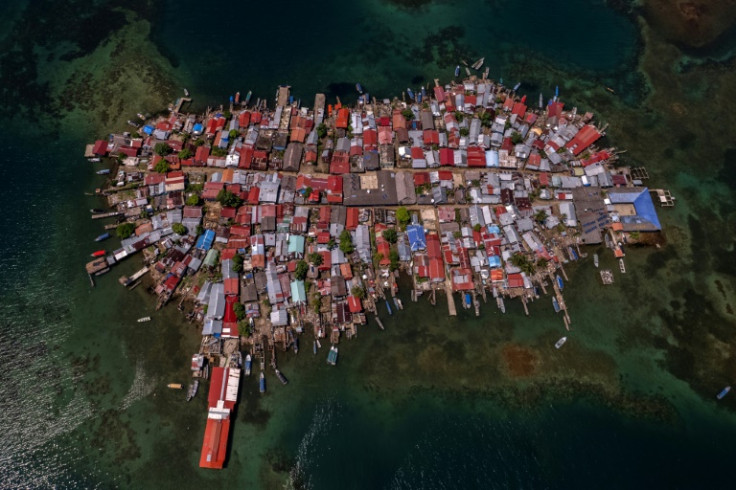
Some 1,200 members of a Panamanian Indigenous community, their island home threatened by rising sea levels, received new government-sponsored homes on the mainland Wednesday.
The soon-to-be former inhabitants of the island of Carti Sugtupu are the first people in Panama to be displaced by climate change.
Caught between nostalgia and hope for a better future, the Carti Sugtupu inhabitants are trading their ancestral home for the newly-built settlement of Nuevo Carti (New Carti) in the Guna Yala Indigenous region of Panama's Caribbean coast.
"I am exited. The houses are beautiful. They are small, but very comfortable," Vidalma Yanez, 57, told AFP outside her new home.
On the island -- the size of five football fields -- the community lived in rudimentary dirt-floor houses crammed together, some jutting out into the sea on stilts.
They had no drinking water, sanitation or reliable electricity and lived off fishing, the harvesting of starchy crops like cassava and plantain, traditional textile production, and some tourism.
Their homes flooded on a regular basis, and experts warned that rising sea levels would soon make life even more uncomfortable.
Scientists say climate change is causing sea levels to rise, mainly due to meltwater from warming glaciers and ice sheets.
"The climate crisis that the world is experiencing... has forced us here in Panama to move (the population) from the island to this urban development of about 300 homes," President Laurentino Cortizo said Wednesday as he presented house keys to a first beneficiary family.
The big relocation -- about 15 minutes by boat -- will start next week.
"I like the house," said 26-year-old Marialis Lopez who will be relocating with her three children and two brothers, and cannot wait to start bringing her furniture and to "plant flowers."
"I can change my life here, it's better than being there" on the overcrowded island, she told AFP.
Carti Sugtupu, whose inhabitants are all of the Guna Indigenous group, is one of 49 inhabited islands in the area -- all between 50 centimeters (19 inches) and one meter (three feet) above sea level.
The new settlement, built by the government at a cost of $12.2 million and owned by the community, boasts houses that each have two bedrooms, a living and dining room, kitchen, bathroom and laundry -- all with water and electricity.
Each house is about 41 square meters (441 square feet) on a plot of 300 square meters (3,200 square feet).
There are also common cultural spaces and facilities for disabled people.




